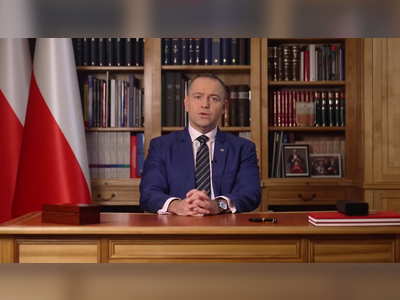Escape Unveils Shocking Abuse in Belgium: Parents Used Daughters as Sex Slaves
Parents sentenced to 15 and 13 years in prison after daughters flee horrific captivity, revealing years of unimaginable exploitation.
In a harrowing case that has sent shockwaves through Belgium and beyond, a court in the Belgian province of Limburg has sentenced a father to 15 years and a mother to 13 years in prison after their four daughters escaped, revealing years of egregious abuse.
The daughters, all from a blended family, had been subjected to unimaginable acts of exploitation, used as sex slaves under the very roof meant to provide them sanctuary.
The abuse, which came to light only after the two youngest girls managed a daring escape on bicycles, underscores a deeply troubling narrative of manipulation and cruelty within the family unit.
This escape marked the end of a prolonged and painful period of captivity, highlighting the resilience and bravery of the victims in the face of abject oppression.
The father perpetuated a deceitful and insidious narrative, claiming that the children themselves sought such treatment, an assertion dismissed with disgust by the court.
His defence only exacerbated the gravity of the crimes, underlining a disturbing pattern of denial and blame-shifting that characterized the prolonged ordeal of his victims.
The trial has captivated public attention, not only due to its distressing details but also because it reveals the systemic vulnerabilities that allowed such abuse to persist unchecked.
How these blatant signs of distress went unnoticed for years raises serious questions about social oversight and the protection mechanisms supposedly in place for vulnerable children.
Belgium, already grappling with societal introspection, must now confront uncomfortable questions about the sufficiency and readiness of its systems to detect and prevent such maltreatment.
As details emerged in court, the narrative painted a stark picture of coercion and fear, perpetuated by manipulation and enforced silence.
This case, tragically unique in its severity, serves as a wake-up call for communities and authorities worldwide.
It underscores the critical need for vigilance and the courage to speak up, reinforcing that the safety and protection of children must remain paramount.
The tragic story of these young girls now serves as a somber reminder and a call to action: ensuring such atrocities cannot occur in silence requires collective awareness, robust protections, and a justice system primed to act decisively on behalf of those most vulnerable.
The daughters, all from a blended family, had been subjected to unimaginable acts of exploitation, used as sex slaves under the very roof meant to provide them sanctuary.
The abuse, which came to light only after the two youngest girls managed a daring escape on bicycles, underscores a deeply troubling narrative of manipulation and cruelty within the family unit.
This escape marked the end of a prolonged and painful period of captivity, highlighting the resilience and bravery of the victims in the face of abject oppression.
The father perpetuated a deceitful and insidious narrative, claiming that the children themselves sought such treatment, an assertion dismissed with disgust by the court.
His defence only exacerbated the gravity of the crimes, underlining a disturbing pattern of denial and blame-shifting that characterized the prolonged ordeal of his victims.
The trial has captivated public attention, not only due to its distressing details but also because it reveals the systemic vulnerabilities that allowed such abuse to persist unchecked.
How these blatant signs of distress went unnoticed for years raises serious questions about social oversight and the protection mechanisms supposedly in place for vulnerable children.
Belgium, already grappling with societal introspection, must now confront uncomfortable questions about the sufficiency and readiness of its systems to detect and prevent such maltreatment.
As details emerged in court, the narrative painted a stark picture of coercion and fear, perpetuated by manipulation and enforced silence.
This case, tragically unique in its severity, serves as a wake-up call for communities and authorities worldwide.
It underscores the critical need for vigilance and the courage to speak up, reinforcing that the safety and protection of children must remain paramount.
The tragic story of these young girls now serves as a somber reminder and a call to action: ensuring such atrocities cannot occur in silence requires collective awareness, robust protections, and a justice system primed to act decisively on behalf of those most vulnerable.











